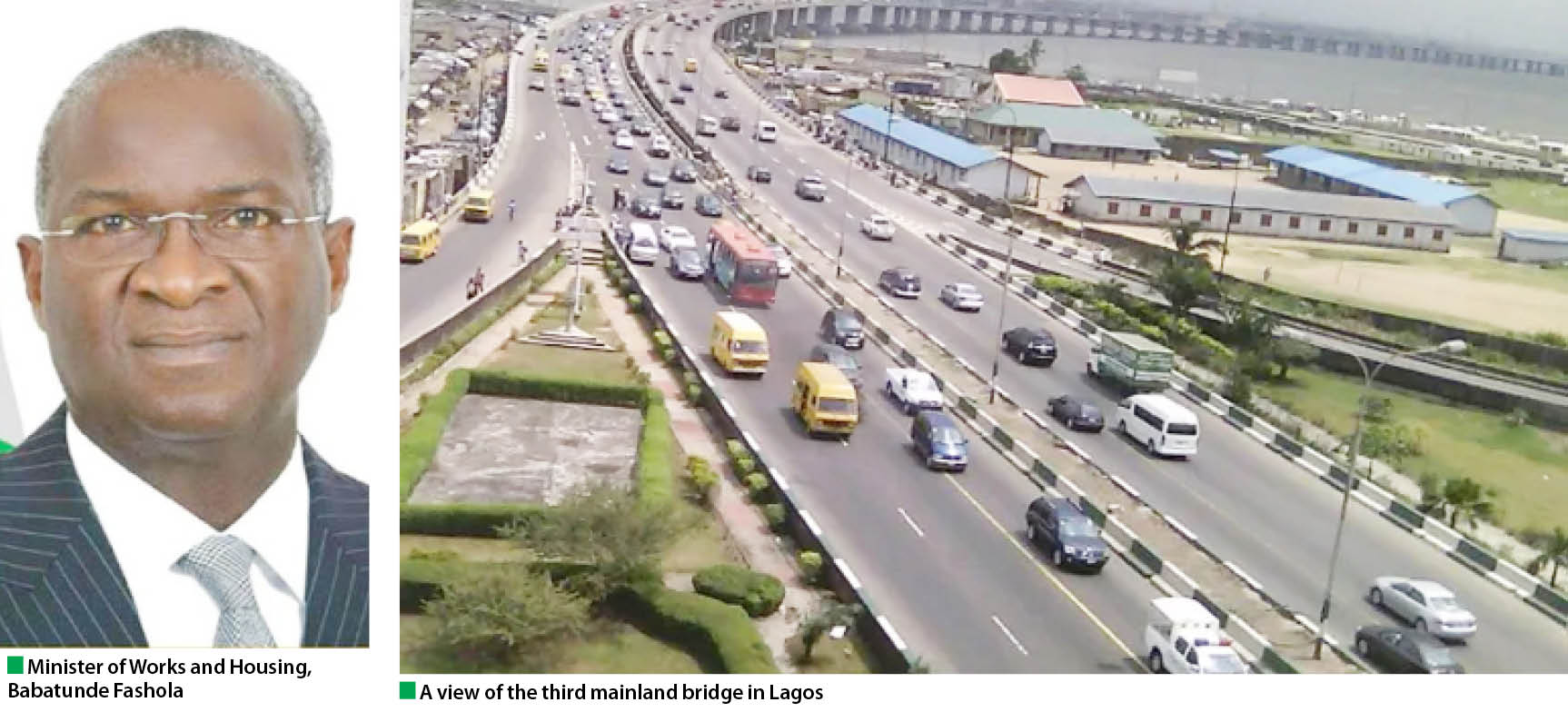The network of roads that enable smooth access to every part of the country have overtime been in a state of dilapidation due to lack of constant maintenance or shabby reconstruction by government approved contractors.
Nigeria currently has 200,000km of roads with the federal government responsible for 35,000km while the rest belong to the 36 states. The ones controlled by the federal government were mostly built during the military era as well as the early years of Nigeria’s independence, as such they are aged, ridden with pot holes and/or in general state of disrepair.
- 2023: IPAC rejects NDLEA’s proposal for drug test on aspirants
- Sex education is the parents’ responsibility, not the media
Road transportation is arguably the most used mode of transportation in the country and according to the National Bureau of Statistics (NBS), it was used to ferry goods worth N227.74bn in and out of the country in 2021. Despite this huge economic potential, its continuous neglect has aided and abetted insecurity as bad spots were usually taken advantage of to rob or kidnap travellers.
The Federal Ministry of Works and Housing (FMWH) is overseeing road infrastructure in the country with a budget of N430bn and N563bn, in 2021 and 2022 respectively, which it shared with other agencies it superintends. Its ability to fix the road deficit in the country was not feasible with paucity of funds.
With this realization, the federation government launched a series of policies to revamp the roads for good use.
SUKUK
In 2017, the federal government launched the SUKUK, an Islamic form of bond financing. This involves investment in an identified asset which the investor is entitled to money made from it.
Similarly, the Debt Management Office (DMO), who issued bonds on behalf of the federal government described Sukuk as an investment certificate that represents the ownership interest of the holder in an asset or pool of assets; and this certificate entitles the holder to receive income from the use of the assets. The income accrued would be paid twice in a year and has a tenor of seven years.
Termed Sovereign Sukuk, the DMO first issued a N100bn Sukuk to rehabilitate and construct 25 road projects across the six geopolitical zones.
The then Finance Minister, Kemi Adeosun, said the Sukuk was to fund the roads in order to “ease commuting, spur economic activities across the country and further close our infrastructural gap.”
Following its success, another was issued in 2018 to the tune of N100bn for 28 roads. Even though, the government is yet to deliver on all the projects under the scheme but emboldened with its acceptance as the offers received often go beyond what was issued, in 2021 a N250bn Sukuk was issued again with the DMO describing it as a strategic initiative to support the development of infrastructure, promote financial inclusion and deepen the domestic securities market.
Road Infrastructure Development and Refurbishment Investment Tax Credit Scheme
In 2019, President Muhammadu Buhari signed Executive Order 007 2019, known as Road Infrastructure Development and Refurbishment Investment Tax Credit Scheme for big corporations in the country to get involved in the road construction.
The scheme kicked up with six investors, including Dangote Industries Limited; Lafarge Africa Plc; Unilever Nigeria Plc; Flour Mills of Nigeria Plc; Nigeria LNG Limited and China Road and Bridge Corporation Nigeria Ltd to invest in 19 road projects, measuring 794.4km.
The Minister of Works and Housing, Babatunde Fashola, however, stated that smaller companies without big turnover could also come together as a group to construct smaller roads.
The Minister of Finance, Budget and National Planning, Zainab Shamsuna Ahmad, had said the scheme was to incentivise private sector investment in Nigerian roads across key economic corridors and industrial clusters, thereby relieving the government of the burden of funding the initial outlays for these investments.
“In terms of the enabling legal framework, Mr President is empowered by Sections 5 and 315 of the 1999 Constitution to make Executive Orders, such as this Executive Order #007 of 2019, to alter, repeal or otherwise modify existing laws,” Ahmad said.
She added that the scheme was based on the demand for road projects by companies and other corporate sponsors, who are willing to deploy their own working capital and financial resources to fund projects located in the major economic corridors of the country where they have significant businesses and operations.
Presidential Infrastructure Development Fund (PIDF)
The Presidential Infrastructure Development Fund (PIDF) was created by the federal government to aid the completion of projects under construction that are stuck due to lack of funds.
Created under the National Sovereign Investment Fund, its funding is not limited to road construction but it has been used to fund major signatory road projects under president Buhari such as the Second Niger Bridge, Lagos-Ibadan Expressway and the Abuja-Kaduna-Kano Road.
During its formation, the Nigerian Sovereign Investment Authority (NSIA) said the initiative was aimed at eliminating the risks of project funding, cost variation and completion that have plagued the development of the nation’s critical infrastructure assets over the last few decades.
It added that “This commitment by the President and NEC, allows all state governments to own an economic interest in the project companies that will be professionally developed and managed by the NSIA which investments will yield returns, which will diversify revenues to states, improve the fiscal sustainability profile of the federation and ensure Nigerians benefit from modernised infrastructure for decades to come.”
Highway Development Initiative
Highway Development Initiative (HDI) was launched in 2020 for private companies to manage Nigeria’s highways thus turning them into a profit-oriented investment.
Fashola had during the launch of the programme said the scheme is expected to yield over N1trn once it begins generating 50,000 direct jobs and 200,000 direct jobs.
The scheme is divided into the Unbundled Assets that allows approved companies to build assets on the road that can be used by travellers and in turn generate revenue while the Value-Added Commission is to make economically viable roads given out to companies to develop and manage the road pavement and entire right of way.
FG should harmonise road policies
– Expert
Speaking on the efficacy of the policies, the CEO, African Railway Consulting Ltd., Mr Rasheed Olawale, said some of the policies are yielding results while others are not, so there is the need to harmonise some of the policies under a single policy focus.
“This will ensure concerted attention to achieve improved road networks in the country. The harmonisation needs to extend to the making of a multimodal policy that will create a seamless interface and interaction among the various modes of transportation.
“Good roads today will not last a year if heavy freight that should be on rail is on the road. We need complementarity among the modes for our roads to last longer and yield desired results,” Olawale noted.
He also urged the federal government to finalize the corridor development policy in the management of road networks as the policy has been in the works for more than five years.
“A corridor approach to road development will transcend the present line of discordant initiatives as it will holistically address economic sustainability questions before, during and after road construction. We have about 12 corridors already identified but corridor development philosophy must be applied for it to yield any results.”
He further stressed on the need for a National Transport Commission to create a regulatory framework for the transport sector.
“We need a road regulator, a national road commissioner, a railway regulator. The transport commission will create a regulatory and competitive platform for the various modes of transport. It is only then that any efforts put in road construction can yield any desired results. The president needs to sign the National Transport Commission Bill into law.”

 Join Daily Trust WhatsApp Community For Quick Access To News and Happenings Around You.
Join Daily Trust WhatsApp Community For Quick Access To News and Happenings Around You.



